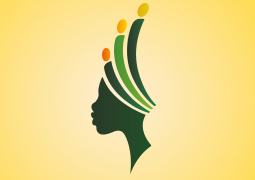
The Eastern Cape Provincial Branch of the Common Wealth Women Parliament (CWP), held its Women in Leadership Dialogue Session which took place at the Maluti Civic Centre in Matatiele today. Its parent body, the Commonwealth Women Parliament has come a long way from operating on the margins as an unrecognised lobby group with no political standing in the affairs of the Common Wealth Parliamentary Association, to claiming the centre stage as the vanguard of the gender mainstreaming agenda in all Commonwealth parliaments. As such, it has given women a credible voice in its resolve to foster gender parity in decision-making positions.
This two-day gathering of the Eastern Cape Provincial Branch of the CWP’s Women in Leadership Dialogue Session is riding on this achievement to further the cause of women. It’s theme: “Women at the Centre of Radical Transformation”, is indicative of the women’s new resolve to change South Africa’s economic status quo and put women at the forefront of its economic transformation to bring about an inclusive growth.
Addressing the session, the Speaker of the Eastern Cape Legislature Ms Noxolo Kiviet, emphasised that there was an urgent need to harness women’s forte because “their collective strength in action is like a hard rock that cannot be broken”.
She said women can learn from the resolve of the June 16 Uprising. “What we can learn from June 16 is that when you are united in action, you stand to gain ground and victory ultimately.”
Underlining the challenges of women, according to her, is the demon of patriarchy. “Woman abuse and the under-development of women is a result of patriarchy. Patriarchy remains the contributing factor to many of the challenges that women are still faced with. Women under-development is propelled by the parasitic nature of the men’s hand in their affairs,” she said.
According to her, racism and gender inequality are two demons that women should do all they can to strangle, she said. She cited Winnie Mandela and Albertina Sisulu as typical examples of such a resolve. “Winnie Mandela and Ma Sisulu fought these demons until the end of their lives. Through their leadership, they created a foundation for gender emancipation and liberation. And we must maintain the fact that there is no freedom without women emancipation.”
She said they are stalwarts that women must take a leaf from. “They were unflinching that gender inequality should be uprooted.”
She said the hosting of this session in Maluti, a rural Eastern Cape village bordering Lesotho, was symbolic of the CWP’s resolve that the legislature should not only talk on behalf of rural women, but should involve them in decision-making processes that affect their daily lives. “We came to these rural areas mandated to talk about rural women. We talk on their behalf, to talk with them and not for them. We are here to connect, to share information, to capacitate each other, so that they can be able to understand how they contribute to the realisation of radical economic transformation. That is why we are here. We are here to engage with the women who live here in the rural areas.”
The MEC for Sport, Recreation and Arts, Ms Bulelwa Tunyiswa, standing in for the Premier of the Eastern Cape, said the women’s development instruments adopted by the Premier are informed by the Elimination of Discrimination Against Women; the SADC Protocol; the Constitution of the Republic of South Africa; the National Development Plan and the Provincial Development Plan guide the Provincial Government of the Eastern Cape in addressing women’s emancipation and gender equality.
The Eastern Cape Provincial Government has instruments such as job access plans for women and disabled women as well as Employment Equity Mainstreaming and Diversity Management Committees that are pitched at strategic level.
Ms Tunyiswa reported that the Department of Human Settlements has reached the 50% target of women representation in senior level, the Provincial Treasury and Health are sitting at 45%, respectively.
“What we are trying to do is to ensure that systemic disadvantages are being addressed. One of the provincial interventions is to ensure that equity committee resolutions are mandatory and are rolled out. To achieve that, we have developed governance and policy development for the focal point of gender equity.”
She said it is safe to say that women leadership is a programme that is close to the heart of the Premier of the Eastern Cape. “Through his office’s intervention, we now have women who have made advances in, among other things, leadership management and corporate governance.”
Progress has been made to ensure women are empowered to meet the Sustainable Development Goal 5 because if we don’t address it, that means we don’t take the cause of women seriously, she said.
Speaking on gender inequality, the lawyer and gender activist, Ms Xoliswa Sibeko, stated that women are always seen as minors to their husbands. Women are not treated as major people who can lead their lives. We are always seen in relation to men, as minors to them.
What causes women to be strong as kids, but lose that quality when they reach puberty? What causes that? she asked. “Once we get into a sexual relation with men, we lose or give our power to men. And your being is sacrificed and we would do whatever to protect this relationship, even if it is abusive.
“Most often, we propel men to power, why can’t women propel each other to power? We must ensure that no man ascends to power without ensuring that it guarantees 50/50 in leadership. We are ready to lead in whatever capacity. We work triple harder than men, we have all the capacity to make change. And we have numbers on our side,” she said.
Abel Mputing

